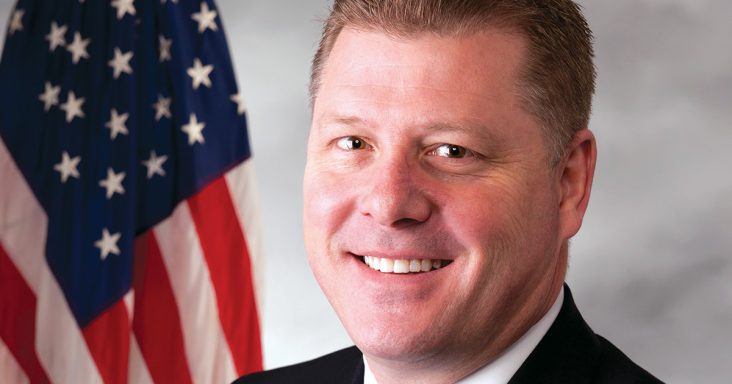Rep. Crawford gives infrastructure law D grade
by May 22, 2023 4:22 pm 864 views

Rep. Rick Crawford, R-Jonesboro, criticized the slow rollout of the $1.2 trillion infrastructure law, or Infrastructure Investment and Jobs Act (IIJA), that he voted against. He gave it a D grade.
The infrastructure law, or the Bipartisan Infrastructure Law, was approved about 18 months ago. All six members of Arkansas’ Congressional delegation voted against it.
In a Transport Topics interview Monday (May 22), Crawford spoke about various aspects of the law and his work as chairman of the House Highways and Transit Subcommittee.
“We’re just not seeing the money flowing as expected,” said Crawford, adding that regulatory challenges, higher interest rates and inflation weren’t accounted for on how they’d affect the infrastructure projects and that grant money was provided more quickly in previous federal programs. “It may be a rural and urban divide. I don’t have any largely urban areas in my district at all…The biggest town in my district happens to be my hometown, Jonesboro…We would certainly like to see the process expedited so that we can get those funds where they can do some good in areas that need it.
“I think a lot of it is regulatory and maybe just that the administration may be dragging their feet. I don’t know, but we would like to find out.”
Crawford also discussed another aspect of the law that established a pilot program for 18- to 20-year-old interstate drivers. He said the Biden administration looks to be “slow walking” the program and increasing the requirements that weren’t initially in the law, including requiring driver-facing cameras in trucks that driver apprentices use. He called the requirement an intrusion and said this will likely create a lack of interest in the program.
He voted against the law because of its high cost and because it was poorly written. Also, he said the law primarily focuses on “a climate agenda” while infrastructure investment was secondary. A provision he would’ve liked in the law would be to address all modes of infrastructure or more than only highway projects. He hopes to address other infrastructure concerns in a supply chain bill that he plans to work on in the coming weeks in the House Transportation and Infrastructure Committee. Highways and Transit is a subcommittee of the committee.
Asked whether truck parking will be included in the supply chain bill, Crawford highlighted the importance of additional truck parking and how it should have been included in infrastructure law instead of providing money to build electric vehicle chargers. He said that work on the bill might start this week.
Crawford said he’s not against electric vehicles, but electricity generation infrastructure isn’t available to meet demand if everyone had an electric vehicle even with the existing fossil fuel and nuclear plants. The transition to renewables and the high cost of electric vehicles were other concerns.
“I’m all in for all of this,” he said. “I’m not against EVs at all. But I think we can’t facilitate the introduction of EVs and at the same time be downgrading our electric grid and expect that we’re not going to have major problems in the short term if we continue on that course.”
On truck parking projects, Crawford said he would be open to commercial collaboration with truck stop companies and the state. However, he wouldn’t want the state to compete with companies on the projects.
Regarding recent federal highway guidance on repairing highways, Crawford explained that doing repairs before expanding capacity might not be the best approach. He pointed to the nonstop construction work on Interstate 40 between Little Rock and Memphis. The long-term solution would be to expand capacity to meet traffic volume instead of endless road repairs.
Crawford also spoke about driver safety issues, labor challenges and his thoughts on the work of U.S. Transportation Secretary Pete Buttigieg.
“I have to give him personally high marks for his personal response to the I-40 bridge shutdown,” Crawford said. “He did address that quickly…
“Generally, speaking I think he can do better when we’re talking about the administration of IIJA and making sure that not only are we seeing those funds going to major metropolitan areas but recognizing rural communities who are dependent on infrastructure investment that they’re not being left out.”
